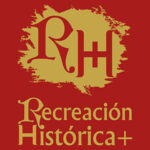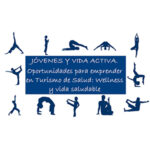Description
River tourism activities have a great potential to attract visitors, as well as to generate wealth in the destinations where they are developed. The increase in demand for this type of activity has meant an increase in investments and a greater development of certain infrastructures, boats and other actions that have not always been undertaken from a sustainable point of view. At the same time, visitors increasingly value and behave respectfully in the natural spaces they visit, highlighting the need for them to be preserved and protected.
Protection measures not only include immediate actions, but also those initiatives that aim to raise awareness among all stakeholders involved in river tourism activities (SMEs, harbour managers and owners, professionals, local community, visitors, etc.), as well as those that help to improve their training in this field by providing user-friendly training tools and materials that help them to increase their knowledge, share good practices and seek sustainable solutions.
Financed by:
ERASMUS+ (2015)Objective
The EFF TOURISM project was included in the last set of measures, aiming to respond to a set of needs identified in this field:
- It provided these actors with skills to reduce their environmental footprint.
- It contributed to the preservation and sustainability of natural areas and river ecosystems, through the promotion of sustainable measures and behaviours.
- It helped these agents to improve their professional profiles and become more competitive. It also laid the foundations for detecting new business, innovation and cooperation opportunities in this field.
By providing the target audience with a self-assessment tool, which allowed them to measure the environmental footprint they have on the natural areas where they carry out their tourism activities, EFF TOURISM aimed to encourage those with a low footprint to share their good practices. On the other hand, it is a warning signal for those with a high footprint, encouraging them to develop responsible actions to reduce their footprint.
Project consortium
In order to achieve the project’s objectives, EFF TOURISM was developed by a consortium of 7 entities with a varied profile (environmental consultancy, tourism institutes, associations and SMEs focused on rural tourism).
- CLUTUREX. AEI Tourism Cluster of Extremadura (Spain).
- IC IMPROVE. Ingeniería y Consultoría Mejora S.L. (Spain).
- VELENCEI- Lake Development not for profit LTD (Hungary).
- KARUSKOSE OU (Estonia).
- INUK. Institute for Advanced Communication Management (Slovenia).
- FEDETON. Fédération Européenne de Destinations Touristiques Nautiques (France).
- ITW. Warsaw Institute of Tourism (Poland).


